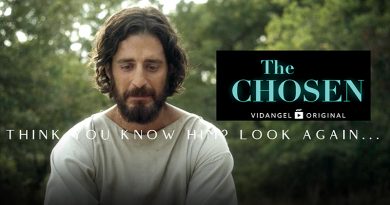Sources of the Christian Self: A Cultural History of Christian Identity
Edited by J.M. Houston and Jens Zimmermann
Wm. B. Eerdmans
Publishing 2018
RevieweD BY
By Joel Strecker
OUR IS A CULTURE preoccupied with issues of identity. This is not a particularly insightful or unique contention, for indeed all cultures have taken up the question “Who am I?”; however it does seem as though we have entered a unique moment in history in which our desire for significance – constantly in tension with our desire for unbridled individual autonomy – feels amplified by an ever-increasing technological interconnectedness that never quite delivers on what we think it is promising.
As Christians, we too are required to take up the question of identity, except with an interesting modification. Not only do we ask “Who am I?” but more particularly “Who am I in Christ?” (that slippery Pauline phrase); what does it mean for us here and now to embrace the label “Christian”?
A masterfully compiled tome of essays entitled Sources of the Christian Self: A Cultural History of Christian Identity provides thoughtful reflections on this question. Edited by James Houston, professor emeritus and co-founder of Regent College in Vancouver, and Jens Zimmermann, professor of philosophy, literature and theology at Trinity Western, the book contains an impressive array of contributions from across a variety of academic fields (one surprising and delightful addition, for example, is a thought-provoking essay on Thomas More from the late Robert Bork).
The title tips the hat towards some of the philosophical inspiration that gave rise to the book, namely Charles Taylor’s monumental work: Sources of the Self: The Making of Modern Identity (Cambridge, 1989). The other significant philosophical work that looms large in this volume is Paul Ricoeur’s Gifford Lectures: Oneself as Another (Chicago, 1992), where it is argued that identity is inherently relational: to exist is to have an obligation to the world. Should one be unfamiliar with either Taylor or Ricoeur, the book remains nonetheless very accessible, and summaries of Ricoeur in particular are offered at several points, with the fullest exposition occurring in Zimmermann’s own essay on Dietrich Bonhoeffer.
In total, there are forty-two essays, which move chronologically from Abraham to Augustine, through Julian of Norwich and Dante all the way up to Jacques Ellul and a discussion of contemporary African Christianity. The contributors, who each wrote on one person (with a few exceptions), were specifically asked two questions: what did it mean for this person to be a Christian, and what can this person teach us about identity in Christ? In one sense then, this is a book on the theme of theological anthropology. If all of this sounds awfully academic for the average reader, they shouldn’t be put off. To quote the editors themselves in their introduction, “this volume seeks to tell the story of Christian identity in terms of lived reality”: the mode of exploration in this volume is largely narrative, and fairly accessible.
With that said, given the broad swath of time and space, and the sheer range of contributors who are included – many who are established scholars in their field – it should not come entirely as a surprise that the content overall is somewhat uneven. Some essays are strongly skewed towards the academy, while others are more lay-accessible; some are firmly oriented towards history, others are more philosophical. The intended audience is thus the educated, inter-disciplinarily inclined Christian. It is, in a word, a very “Regenty” sort of book. Speaking personally (as a Regent alumnus), this is often one of the appeals of an anthology: many voices, artfully woven, make for beautiful music.
My initial impression was that this would be a volume best digested over a longer stretch of time than one week, perhaps even piecemeal over the course of a month. There is a lot of content here, and it can be difficult at times to trace the threads from essay to essay. A persistent reader, however, will likely be rewarded by persevering with these saints in a more focused and intensive approach, as sustained reading of the essays helps to uncover many of the overarching themes which guided the editors in their selection and arrangement. With that opinion offered, however, all of these essays stand on their own merit, and can be enjoyed one at a time, as occasion or interest warrants (some submissions are in fact republications of an earlier work).
Having gone through the entire work once, the wealth of footnotes provided by the contributors ensures that second or third readings will still provide much grist for the mill, and that this will be a volume worth having on the shelf as a reference work, should one be looking for a ten-page summary on the life of James, Timothy I of Baghdad, or Calvin, Teresa of Ávila, John Bunyan or Christina Rossetti, Pascal, Kierkegaard or Flannery O’Connor, to name but a few.
As one contributor, Janet Martin Soskice, wryly notes: “theological tomes on Christian anthropology […] frequently make dull reading” (p.354). Thankfully that is not the case with Sources of the Self. Across almost seven hundred pages, the reader encounters a striking panoply of saints – engaged critically, described vividly – whose lives offer beautiful testimony to the identity-grounding reality of Jesus Christ. Perhaps it is more accurate to say that this work is theological anthropology as hagiography, with the lives of each character acting as a touchstone for deeper contemplation of the underlying issues, as truth works itself out in lived reality. Upon finishing it, not only has one received a great deal of insightful probing into Christian identity, but one can also exult with the psalmist: how lovely is your dwelling place, O Lord of Hosts! TAP
Joel Strecker is an ordinand in ANiC, as well as a part-time baker and part-time church worker. He and his wife and daughter live in Vancouver.




